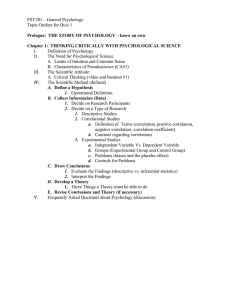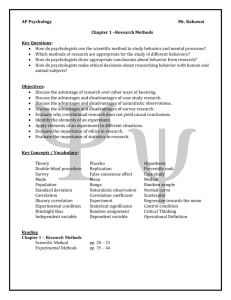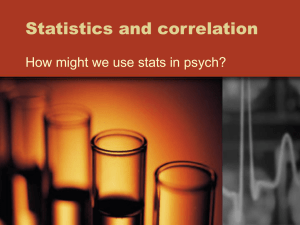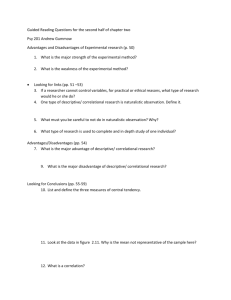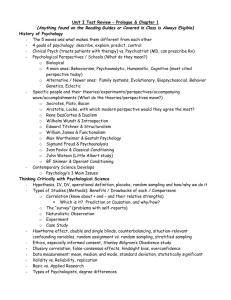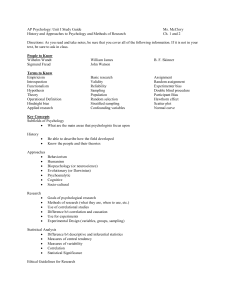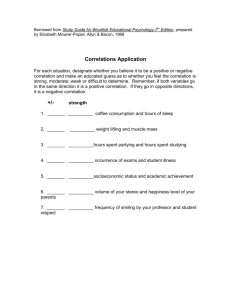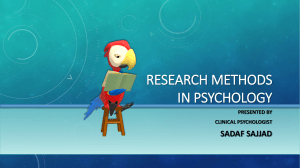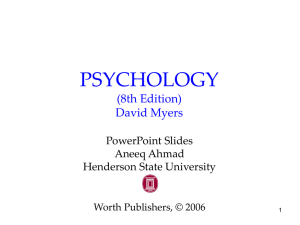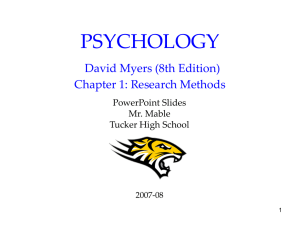NOTE - The day of the test you must turn in the following at the start
advertisement
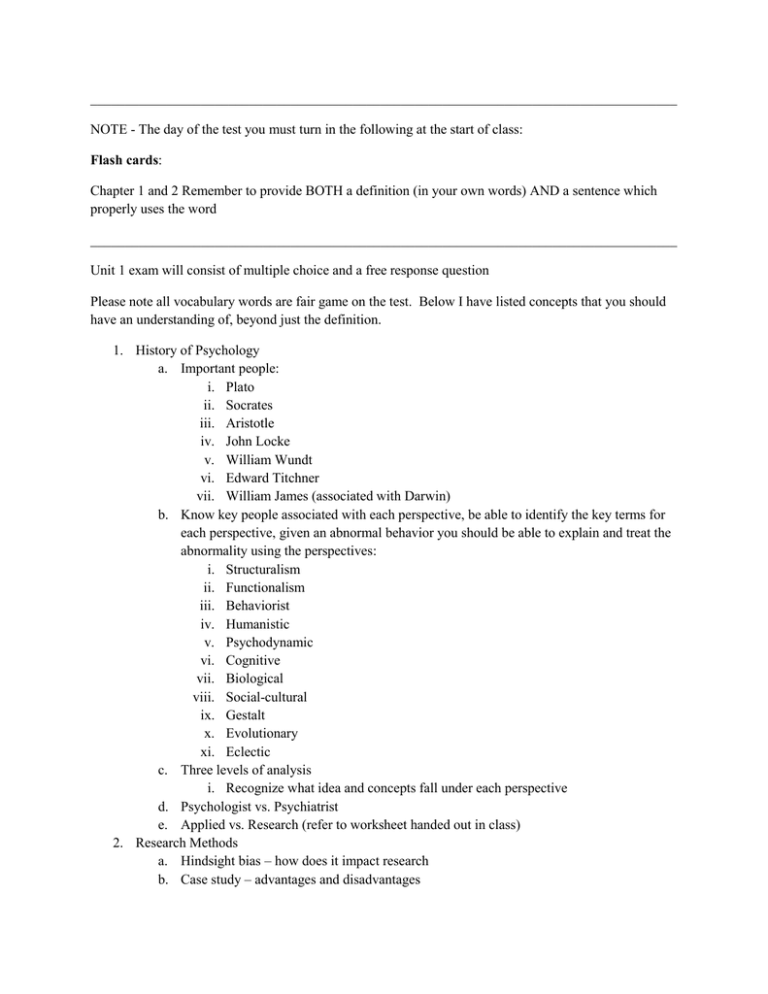
_____________________________________________________________________________________ NOTE - The day of the test you must turn in the following at the start of class: Flash cards: Chapter 1 and 2 Remember to provide BOTH a definition (in your own words) AND a sentence which properly uses the word _____________________________________________________________________________________ Unit 1 exam will consist of multiple choice and a free response question Please note all vocabulary words are fair game on the test. Below I have listed concepts that you should have an understanding of, beyond just the definition. 1. History of Psychology a. Important people: i. Plato ii. Socrates iii. Aristotle iv. John Locke v. William Wundt vi. Edward Titchner vii. William James (associated with Darwin) b. Know key people associated with each perspective, be able to identify the key terms for each perspective, given an abnormal behavior you should be able to explain and treat the abnormality using the perspectives: i. Structuralism ii. Functionalism iii. Behaviorist iv. Humanistic v. Psychodynamic vi. Cognitive vii. Biological viii. Social-cultural ix. Gestalt x. Evolutionary xi. Eclectic c. Three levels of analysis i. Recognize what idea and concepts fall under each perspective d. Psychologist vs. Psychiatrist e. Applied vs. Research (refer to worksheet handed out in class) 2. Research Methods a. Hindsight bias – how does it impact research b. Case study – advantages and disadvantages c. The survey – advantages and disadvantages i. Wording effects ii. Random sampling, population, and sample d. Naturalistic observation – advantages and disadvantages e. Correlation i. Correlation coefficient, cause and effect, illusory correlation ii. Scatter plots: positive correlation, negative correlation, no correlation f. Experimentation i. Advantages and disadvantages ii. Random assignment, experimental group, control group, independent variable, confounding variables, dependent variable, double-blind procedures, placebo effect iii. Be able to list the different components of the experimental design when given a description of an experiment g. Describing data: i. Central tendency: Mode, Median, Mean ii. Measures of variation: Range, standard deviation h. Inferential statistics – statistical significance i. Ethics in research i. Informed consent ii. Protect from harm and discomfort iii. Confidentiality iv. Debrief Possible free response topics: 1. Using the following terms you should be able to defend a statement which claims the history of psychology is boring, simple, and lacks a variety of perspectives: • • • • • • • • Introspection Psychoanalytic theory Behaviorism Humanistic psychology Cognitive psychology Evolutionary Psychology Social-cultural perspective Biopsychosocial perspective 2. Given a research topic be able to explain how to conduct the research using naturalistic observation, survey method, experimental, and a case study. Be able to include important ethical procedure to follow and how to examine data using central tendency and inferential statistics
